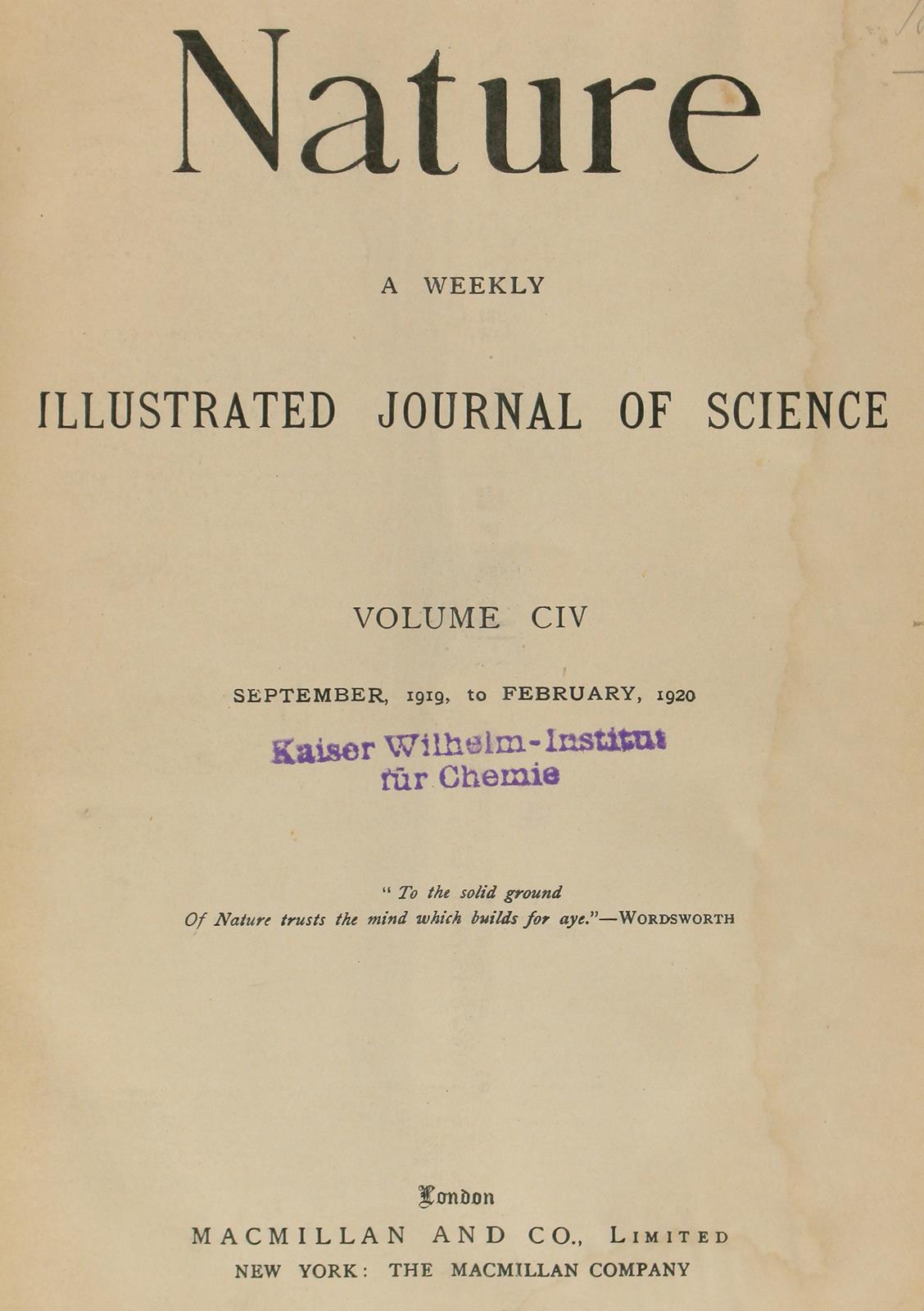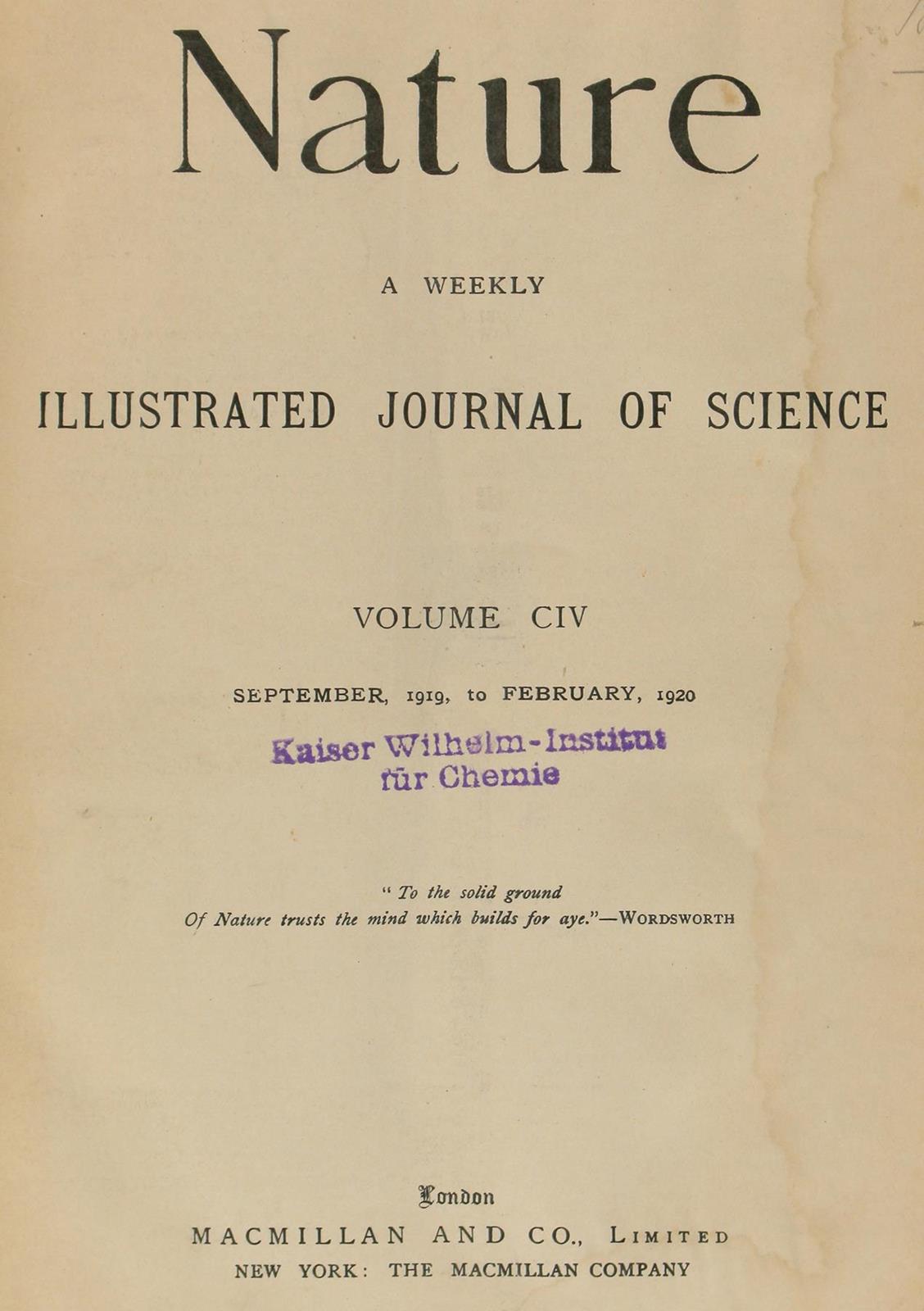ASTON, Francis William (1877-1945). Isotopes . London: Edward Arnold, 1922.
ASTON, Francis William (1877-1945). Isotopes . London: Edward Arnold, 1922. 8 o. 4 half tone plates, text illustrations. Original dark blue cloth, gilt-lettered spine (very minor wear, minor spotting along edges). (Small ink stain along gutter of pp.14-15.) Provenance : C.G. Rakla (signature on front free endpaper). FIRST EDITION. Aston began researching the different atomic weights of two forms of neon at Cambridge in 1913 under the guidance of J.J. Thomson (discoverer of the electron). He left to fight in the First World War, but later continued, replacing Thomson's parabola apparatus with the mass spectograph he had himself invented. His spectrograph gave more concentrated effects, which created greater clarity of identification. Aston won the Nobel Prize for chemistry in 1922 for his discovery of the isotopes of a large number of non-radioactive elements. Norman 77; PMM 412.
ASTON, Francis William (1877-1945). Isotopes . London: Edward Arnold, 1922.
ASTON, Francis William (1877-1945). Isotopes . London: Edward Arnold, 1922. 8 o. 4 half tone plates, text illustrations. Original dark blue cloth, gilt-lettered spine (very minor wear, minor spotting along edges). (Small ink stain along gutter of pp.14-15.) Provenance : C.G. Rakla (signature on front free endpaper). FIRST EDITION. Aston began researching the different atomic weights of two forms of neon at Cambridge in 1913 under the guidance of J.J. Thomson (discoverer of the electron). He left to fight in the First World War, but later continued, replacing Thomson's parabola apparatus with the mass spectograph he had himself invented. His spectrograph gave more concentrated effects, which created greater clarity of identification. Aston won the Nobel Prize for chemistry in 1922 for his discovery of the isotopes of a large number of non-radioactive elements. Norman 77; PMM 412.









Try LotSearch and its premium features for 7 days - without any costs!
Be notified automatically about new items in upcoming auctions.
Create an alert